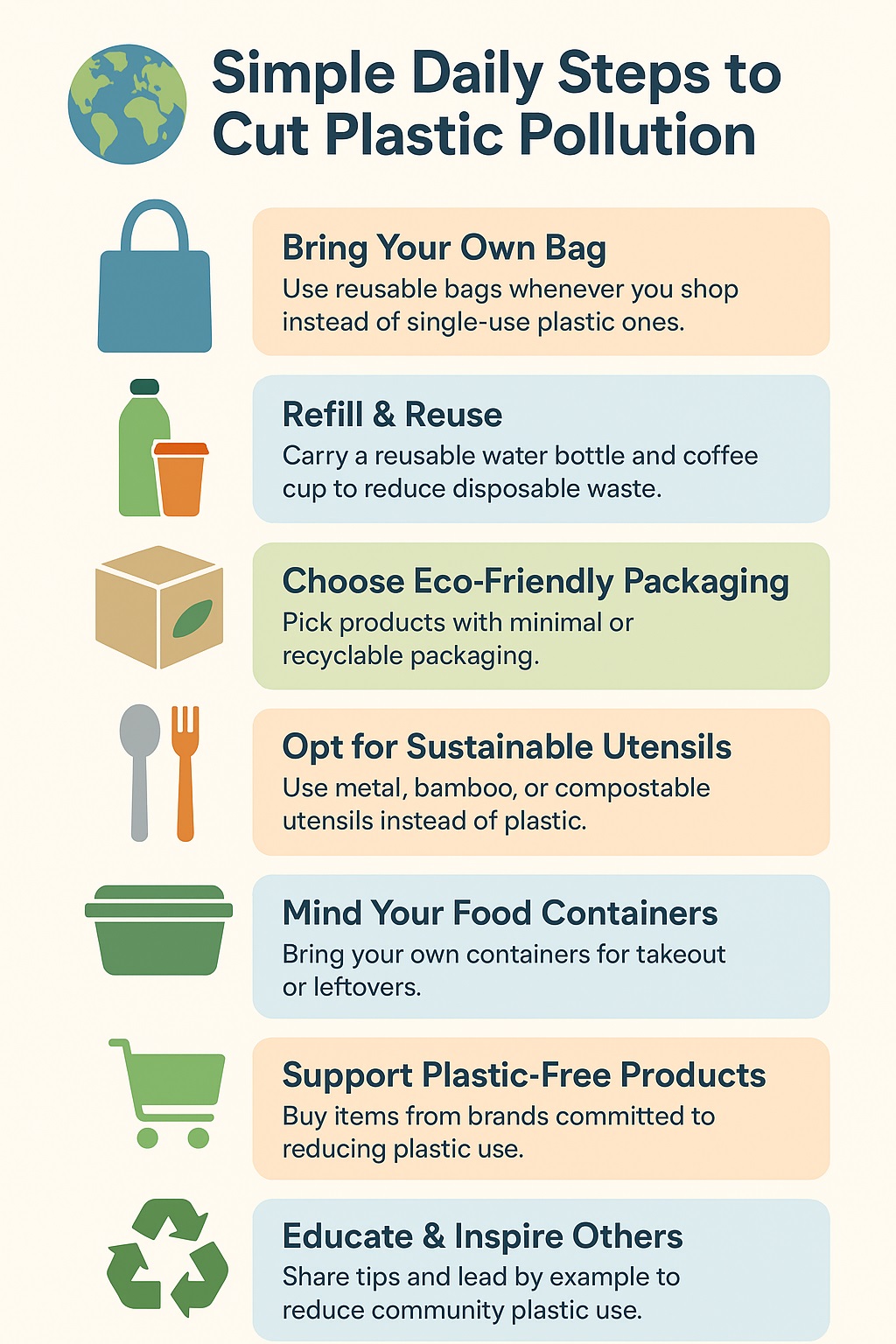
A Global Solution to Plastic Pollution
From Problem to Solution: Pew’s Plan to Beat Plastic
Our oceans don’t have to be plastic soup. A cleaner, brighter future is within reach. Around the world, bold efforts are turning the tide on plastic pollution, proving that together we can protect wildlife, people, and the planet.
Plastic pollution is a global challenge, but one we have the power to solve. The Pew Charitable Trusts is leading the charge with research and advocacy that point the way toward lasting solutions. In its July 2025 update, Pew calls for an ambitious, legally binding international agreement to tackle plastic pollution across its entire life cycle, from production to disposal. This would offer a clear path to a cleaner, healthier planet.
Understanding the Scope of the Problem
Plastic pollution has escalated to a global crisis. Millions of tons enter the oceans annually, threatening marine life and ecosystems. According to Pew, without intervention, projections indicate that by 2040, “the annual production of new plastics will increase by 66% and the flow of plastic into the environment will have nearly doubled compared to 2019 levels.”
Pew’s Comprehensive Recommendations
Pew’s July 2025 recommendations advocate for a holistic approach to combating plastic pollution, focusing on several key areas:
- Reduction of plastic production: Implementing measures to restrict the production and supply of primary plastic polymers is crucial. International targets should be established to reduce plastic production, with trade provisions to prevent non-parties from exporting virgin plastics.
- Bans and phase-outs: Countries should enact bans on and phase out problematic and avoidable plastic products, such as single-use plastics, to reduce environmental impact.
- Improved product design: Encouraging the design of products that are easier to recycle and have a lower environmental footprint can significantly reduce plastic waste.
- Extended producer responsibility: Implementing extended producer responsibility policies ensures that companies that introduce packaging are responsible for its collection, sorting, and recycling, promoting accountability and reducing waste.
- Enhanced waste management: Investing in and improving waste management systems globally can prevent plastic waste from entering the environment and oceans.
- Microplastics control: Specific measures should be taken to tackle microplastics, one of the most pervasive forms of plastic pollution, by regulating sources such as textiles and tires that shed microplastic particles.
The Role of the United Nations Plastic Treaty
It’s true, the latest plastic pollution conference did not yield the breakthrough solutions many hoped for. But momentum toward a global agreement continues to grow. The United Nations is still working toward a legally binding treaty. Organizations like Pew emphasize that such an agreement must address the full life cycle of plastics, from production to reuse, recycling, and safe disposal. Even without a finalized text, the path forward is clear. Comprehensive global action could cut the flow of plastic into the environment seven-fold by 2040.
Implementing Change: A Global Effort
Even as treaty negotiations continue, progress does not have to wait. Governments, industries, and communities around the world can already act on proven strategies to cut plastic pollution. From reducing production to improving waste management, Pew’s recommendations provide a practical roadmap that nations can begin implementing today.
Simple Daily Steps to Cut Plastic Pollution
But meaningful change also starts with individuals. Each of us can make a difference by choosing reusable products, supporting policies that reduce plastic use, and sharing solutions within our communities. By staying engaged and advocating for smarter choices, people everywhere can help accelerate the global shift toward a cleaner, healthier planet. Besides sorting and cleaning recyclables so they really do get recycled, easy ways to curb plastic pollution include:
For a Cleaner, Healthier Planet
The Pew Charitable Trusts’ July 2025 recommendations offer a comprehensive framework for tackling plastic pollution on a global scale. By adopting these measures, the international community can make significant strides toward a cleaner, healthier planet.
Together, our actions today can shape a future free from plastic pollution.
————————–
Note: The information provided is based on the Pew Charitable Trusts’ July 2025 update on global solutions to plastic pollution. For more detailed information on Pew’s recommendations and ongoing efforts, visit the official website.


